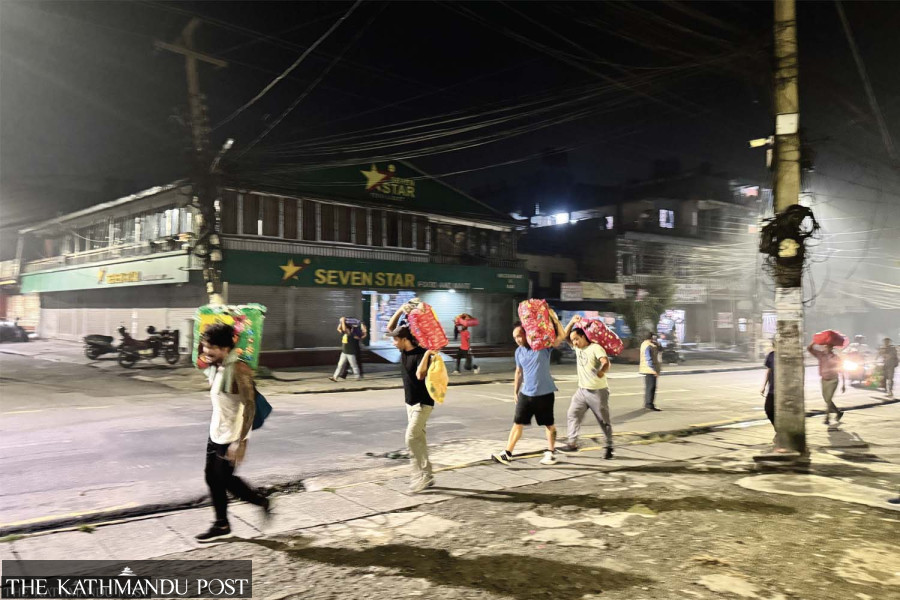Editorial
Menace to society
Bringing the fleeing inmates back to prisons and recovering stolen arms must be a top government priority.
The violence that spiralled out of control following the Gen Z uprising on September 8 and 9 in Nepal has so far claimed 74 lives. Hundreds of people sustained serious injuries, with many still undergoing treatment in hospitals. Arson in vital state institutions such as Singhadurbar, Parliament building and Supreme Court, businesses and media houses shocked folks in and outside the country. Besides these, a serious security issue emerged after the unrest. In one of the biggest jailbreaks in Nepal’s history, around 15,000 inmates escaped dozens of prisons across the country. They are murderers, looters, smugglers and others serving prison sentences or in judicial custody for various crimes. As of Wednesday, over 6,800 inmates who fled the prisons are still at large while 7,300 prisoners have come back—some of them returned to the jails voluntarily while others were rearrested.
To make things even more frightening, at least 1,276 rifles and pistols were stolen and 98,491 rounds went missing from records during the unrest, according to the police. No doubt the munitions have fallen into the hands of criminals as common people would never loot weapons and ammunition from security forces. Within days of fleeing the Nakkhu jail on September 9, a fugitive allegedly killed his wife in Kavre. This indicates how dangerous the fleeing inmates are for society. This festive season, hundreds of thousands of people leave for their ancestral villages from the Kathmandu Valley and other towns for family reunions and celebrations. The festive season continues until Chhath–in the last week of October. At a time police have to be extra cautious, resourceful and ready for action, police stations have been vandalised and security forces are being forced to work in makeshift structures. Many of them lack even basic logistics to run regular services.
Given the fluid politics, protests can take place any time and criminals can misuse stolen arms and ammunition. Conducting parliamentary elections on March 5 is the central task of this interim government. Before that, the government must create an environment where people can join election rallies freely and go to polling booths to cast their votes without fear. To create such a safe environment, the government authorities, particularly Home Minister Om Prakash Aryal and the Nepal Police chief Chandra Kuber Khapung, need to devise specific and effective strategies. First, they have to expedite the manhunt for the fugitives and recovery of the lost arms and ammunition. Public support and cooperation from stakeholders becomes vital in such a situation. It is not something the police can do on their own. The Nepal Police has to strengthen relations with the communities, socially active groups and seek their support to restore law and order. The home minister, for his part, needs to build confidence with vital stakeholders in the current political process such as the Gen Z groups, traditional political parties and win their confidence.
Likewise, collaboration with India is vital, too. Many of the fugitives, as in normal times, must have entered India through porous border points. Collaboration between Nepali and Indian authorities is essential to nab them. After all, the Indians must be as worried about the possible entry of hardened criminals from Nepal. Given the mischief they are capable of, bringing the fugitive inmates back to the prisons and recovering the stolen arms and ammunition must be a priority of the Sushila Karki government.




 20.9°C Kathmandu
20.9°C Kathmandu














